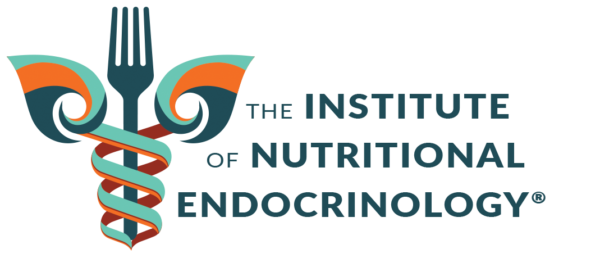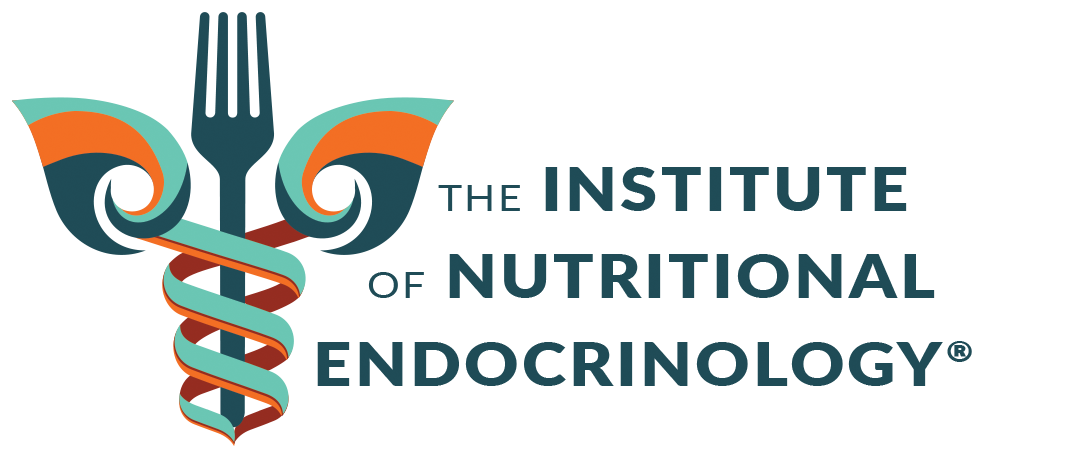Clinical Pearls – 2018
The art of listening – March 25th, 2018
Nutritional Endocrinology Practitioner Training (NEPT)
Clinical Pearl
March 25th, 2018
In Laura Fine’s webinar this week, she shared with us ways to stay out of defensiveness when your client becomes aggressive, withdrawn, or otherwise non-communicative. That’s the time to be listening in attentively and validating them.
When you use the art of reflective listening, it can break through the barriers.
Microbiome Trivia – February 25th, 2018
Nutritional Endocrinology Practitioner Training (NEPT)
Clinical Pearl
February 25th, 2018
Microbiome Trivia
I am continuing to listen to the Missing Microbes book on audio. One of the things that struck me was the concept of amphibiosis, the condition in which two organisms are either symbiotic or parasitic, depending on the context.
Helicobacter pylori is one organism that has an amphibiotic relationship with humans. In the author’s opinion, it’s the best model he knows of.
He explains how H. Pylori used to be a common inhabitant in the stomachs of children, but modern lifestyle, fraught with antibiotics, changes the microbial populations. He also goes on to explain the dangers of aggressive removal of this organism.
It’s fascinating.
I highly recommend you read or listen to “Missing Microbes” by Martin J Blaser. I have it on Kindle, audio, and in hardcover.
I also recommend Dirty Genes by Dr. Ben Lynch.
Good news on Dr. Lynch. I invited him to speak at our upcoming SHINE and, while he said his travel schedule was full for the year, he would be willing to do a Zoom session, and/or some education before or after. I will be in communication.
Food Revolution Network – February 11th, 2018
Nutritional Endocrinology Practitioner Training (NEPT)
Clinical Pearl
February 11th, 2018
Because I was away at an event last week, learning some very exciting things about getting speaking engagements, which I will share when I return, what I have to share for a clinical pearl is an article from the Food Revolution Network on the dairy industry. It’s definitely worth a read:
Fasting – February 4th, 2018
Nutritional Endocrinology Practitioner Training (NEPT)
Clinical Pearl
February 4th, 2018
If you haven’t studied fasting as a therapeutic tool, I highly recommend you read up on it. I’ll be adding a segment about it to the Detox module within the next couple of months.
While I don’t recommend extended fasts without proper supervision, there are centers where you can refer people. I recently guided someone through a 28 day fast.
I have extensive experience with this, have done 28 days myself and am well read. I do NOT recommend you ever do this unless you are trained. I did it because it was a friend and we got his doctors to agree to run tests and monitor medication levels.
Here are the results:
At beginning he was on insulin, metformin, 2 anti hypertensive medications and a statin. Even on all the meds, hi BP was high, his blood sugar rarely below 150 fasting, and he was overweight.
We started with a prep month in December where he did alternate day fasting, and did one 4 day fast. I monitored his stats in a google doc twice a day. His doctor gave him permission to lower insulin daily. I warned him that if ever his blood sugar dipped below 8 while still on insulin to call his doctor immediately.
He started the fast on Jan 1. By day 14, he was off his insulin and most of the meds. His electrolytes dipped down around day 14 so he added salt to his water, magnesium and potassium.
By day 27, he was feeling better than he ever remembered feeling. We spent a couple of hours planning food reintroduction.
I will keep you posted.
The best part is he is finally committed to healthy living.
Yeah!
Cold & Flu – January 21st, 2018
Nutritional Endocrinology Practitioner Training (NEPT)
Clinical Pearl
January 21st, 2018
What’s your favorite cold and flu support? I got my first cold in years this week and it was a challenge It happened right after I returned from Miami where it was 75 degrees and sunny to temps in the teens here in Austin.
Unfortunately I stayed up late in meetings and social events then got up at 6 am for meditation and sunrise runs. I’ve been dozing vitamin c- both liposomal and perque buffered powder. Plus I live my herb pharm throat spray, oregano and echinacea
Yeah!
Therapeutic Fasting – January 7th, 2018
Nutritional Endocrinology Practitioner Training (NEPT)
Clinical Pearl
January 7th, 2018
Therapeutic Fasting
Over the holidays, my husband and I did a water fast.
We drank just water for a full 8 days. On the evening of the 8th day we drank homemade vegetable broth. On the afternoon of the 9th day, I blended the veggies used for the broth and drank that. I had some interesting observations. I tracked glucose and ketones. I didn’t do BP but wish I had. I’m including a link to the google document where I’m posting my results. https://docs.google.com/spreadsheets/d/1PDQDp_XZMlOQwSelm-zhSrbkVdYb3mHzmVyzliok7_s/edit?usp=sharing
I just recently got a second ketone meter called Keto Mojo. It was recommended by one of my clients. It measures ketones, glucose, hemoglobin and hematocrit. I added those columns when I received the meter. I am going to be comparing the glucose reading to my current True to Go (my favorite). I will compare the ketone readings to Precision Xtra.
The things I found interesting were:
During the first 5 days of the fast, my blood sugar was in the 30’s and 40’s. On day 6, I woke up feeling really strong, and felt like exercising. My blood sugar went up from 33 to 44 after 20 push-ups and a minute and a half of planks. After that my fasting blood sugar never went back into the 30’s or 40’s.
I’m interested in finding out if this is coincidence or not. My guess was that I started metabolizing muscle to make glucose at that point. My ketones had been in the 6 range before the exercise and after had been in the 2.5 range.
The next day I felt great again, but didn’t exercise to conserve strength.
On the 7th day, I worked out with Maria through Zoom. Even though we took it relatively easy, my sugar went from 52 to 72. Where did the sugar come from? My glycogen stores were depleted, so I assumed I was burning muscle.
I’m new at gathering this info during a fast so it’s been interesting to note all the changes.
More interesting was that an hour later my sugar went into the 70’s. I assumed, I worked out too hard for my current state.
Since I hadn’t eaten in 8 ½ days by then, I again assumed I was eating muscle to make glucose, otherwise where would it have come from? Thoughts?
My food intro was slow and steady. Broth, blended cooked veggie soup, then raw smoothies. I introduced fat in the form of avocado and dehydrated cashew cheese on Day 11. I felt tired afterwards.
On Day 11, I also started taking supplements, tuning into what my body needed. That seemed to work well.
The things that puzzle me are that my sugar went to 85 after veggie broth and higher after blended veggie soup.
I’m still collecting data and analyzing so I can write a paper.
I think it would be great to take 5-10 people thru this with all taking measurements so I can formulate hypotheses.
Anyone game?
I’m not sure when, but maybe the spring.
Insulin Resistance / fat question – December 3rd, 2017
Nutritional Endocrinology Practitioner Training (NEPT)
Clinical Pearl
December 3rd, 2017
Back to the insulin resistance / fat question…
I reviewed another of the studies I shared with you a couple of weeks ago, this one was
Insulin resistance is a cellular antioxidant defense mechanism
https://www.ncbi.nlm.nih.gov/pmc/articles/PMC2764908/
According to this article, “Insulin resistance may be an appropriate response to nutrient excess, but the cellular sensors that link these parameters remain poorly defined….mitochondrial superoxide production is a common feature of many different models of insulin resistance …”
SO what exactly is nutrient excess? Is it all nutrients? Carb excess? Fat excess? Protein excess? Vitamin and mineral excess?
As we all know, Insulin resistance must be managed or serious repercussions results,. Hyperglycemia and hyperinsulinemia contribute to the development of hypertension, type 2 diabetes, kidney disease, and cardiovascular disease.
There are many risk factors speculated to contribute to the development of insulin resistance including over nutrition, physical inactivity, pregnancy, Hepatitis C, polycystic ovarian syndrome, HIV protease inhibitor therapy, antiinflammatory corticosteroids.endoplasmic reticulum stress, proinflammatory responses, oxidative stress, and more.
This study took a comprehensive approach to identifying the underlying causes, and many of them involve mitochondrial oxidative damage.
Oxidative stress has been implicated in IR, but the precise source of these reactive species is not known.
They compared rats fed a low fat diet (10%) or high fat diet (45%) . in both groups the fat was from Purina Rat chow. They found worse insulin resistance in the rats fed the high fat diets.
Administration of Mm SOD (manganese dependent super oxide dismutase) reduced the level of insulin resistance.
While this study does suggest that higher fat diets contribute to insulin resistance, we do need to consider the source of the fat. The fats in a commercial mix of animal feed are surely oxidized fats — not whole food, unheated fats, so i am not convinced that it’s the amount of fat versus the quality for the fat.
I am still looking for a study comparing insulin resistance in high fat vs low fat whole foods plant strong diets where the type of fat eaten is unheated and NOT oxidized and the remainder for the diet is rich in antioxidants.

